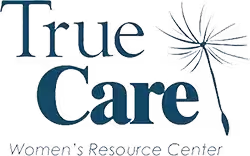Do you know the difference between Plan B and Plan C? We explain below.
Plan B
We also know the Morning After Pill as Plan B or Emergency Contraception. Depending upon the brand, the emergency contraception product contains estrogen and/or the synthetic hormone levonorgestrel,
The Morning After Pill must be taken within 120 hours of having unprotected sex. However, the FDA recommends a woman take Plan B much sooner: “The most important factor affecting how well emergency contraception works is how quickly it is taken after unprotected sex or contraceptive failure. Therefore, the FDA recommends women “… take the product as soon as possible within 72 hours after unprotected sex or contraceptive failure.”
Plan B is not 100 percent effective. According to the Mayo Clinic, there are medications that “can decrease the effectiveness of the morning-after pill, such as barbiturates or St. John’s wort.” Also, Plan B may be less effective in women who are overweight or obese.
According to the U.S. Food and Drug Administration (FDA), “Plan B acts primarily by stopping the release of an egg from the ovary (ovulation). It may prevent the union of sperm and egg (fertilization). If fertilization does occur, Plan B may prevent a fertilized egg from attaching to the womb (implantation). If a fertilized egg is implanted prior to taking Plan B, Plan B will not work.”
Plan C
This is a newer term when it comes to ending a pregnancy. A person purchases the abortion pills online rather than by visiting a doctor to receive them. Also called medical or chemical abortion, the procedure involves taking two drugs: mifepristone, which blocks the hormone progesterone that is needed to continue a pregnancy, and misoprostol, which causes contractions in order to complete the abortion. The two pills are taken 24 to 48 hours apart. This is also known as a medical or chemical abortion.
For decades, these two drugs were dispensed under a doctor’s supervision. Now, however, many groups are pushing for distributing the drugs by mail and having women take them at home – this is known as Plan C. England recently began doing this. However, several women have experienced adverse effects and a few have died.
For a woman thinking about an at-home abortion, there are risks she should consider and questions she should ask.
- How do I know I don’t have an ectopic pregnancy or having a miscarriage?
- Do I really know how far along I am?
- Do I know where these drugs come from?
- How do I know if the medication is the quality I expect and that the drugs I’ve ordered will be effective?
- How do I know if I’m at risk for side effects and/or complications from the medications without seeing a doctor?
Should you experience complications after an at-home abortion, such an allergic reaction to the pills taken, to whom would you turn? A professional, licensed medical practitioner will know if any of your current or former medications and any supplements you take “will interact dangerously with the medications used for abortion.” Abortion drugs can “react badly with numerous medicines and even with certain foods.”
Schedule Your Free Appointment
If you’re considering abortion and you live in or near Casper, Wyoming, contact True Care. We provide answers to your questions before you spend money on abortion pills. We offer FREE pregnancy testing, FREE ultrasound to confirm your pregnancy and inform you of how far along you are, and FREE STD testing and treatment (a woman considering abortion should be sure she doesn’t have an active infection in her body).
Contact our Scheduling Line at 307-215-9684 or schedule your appointment with one of our nurses through our self-scheduling system on our website.
